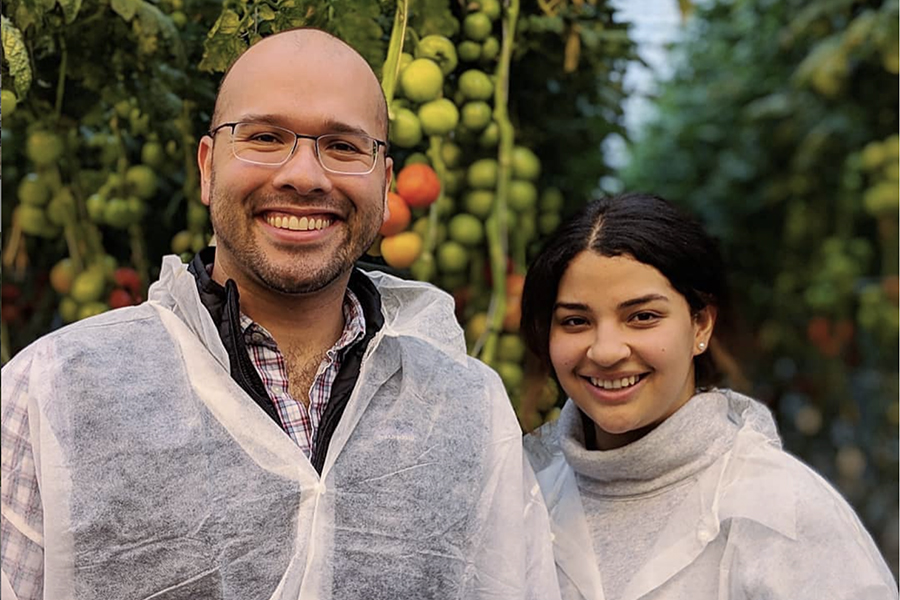The global COVID-19 pandemic has shaken almost every corner of society. From a sinking stock market and rising unemployment to the broken healthcare system and governmental failures, the impact has been widespread. One industry that has been immune to the effects of the pandemic is agriculture. IRI and Nielsen numbers for the week ending March 14-15 saw fresh produce sales continuing to soar. The reason is simple: even in a crisis – people need to eat.
But just because the agriculture industry is continuing apace amid the crisis, it’s still an industry with its share of problems, and the biggest of those problems, by far, is waste.
Globally, agriculture is a $3 trillion industry – but about 33%, or $1 trillion of that, goes to waste – enough to feed every hungry person on the planet. Here in the U.S., we waste over 25 billion pounds of post-harvest fruits and vegetables annually (around $30 billion in value). And upsetting as that number may be, it gets more depressing when you consider that 37 million Americans, including 6 million children, live without enough to eat.
And it’s not just the food that’s wasted. When we throw away 25 billion pounds of produce, we’re also wasting the water and labor necessary to grow that food (not to mention the harmful CO2 emissions we’re adding into the atmosphere to ship it). In other words, the repercussions of our waste ripple backward through the supply chain. Insult to injury, as they say.
To reduce these harmful impacts on our environment, while still feeding our growing population, we need to find solutions that maximize efficiency. But creating efficiencies around fresh produce, a product that, by its nature, has a limited shelf life, is no easy feat.
A young startup in Chicago, Hazel Technologies, may have cracked the code, and their secret sauce is basic chemistry. Founded in 2015, the company’s USDA-supported solution involves small packaging sachets (about the size of a sugar packet), which are dropped into boxes of produce during shipping and extend the shelf-life of produce up to three times by slowing the aging process and preventing decay. This added shelf-life means less produce wasted for growers (and bigger profits). For the everyday consumer, it means fresher, longer-lasting produce. Everybody wins.
“Hazel’s goal is to bring transformative change the food supply chain not only here in the U.S., but all over the world,” says Aidan Mouat, CEO of Hazel Technologies. “Food waste is a global problem, and there’s no reason our solution can’t work at that level, too.”
Hazel’s sachets work by inhibiting ethylene, a hormone molecule that fruit naturally emits, triggering the aging process. A quarter gram of the material inside a Hazel packet can protect 50 pounds of produce. The chemicals are proprietary, and the sachet time releases them to help preserve the product. Each fruit has a different package based on its ethylene sensitivity, and some fruits require different products entirely. Berries need antimicrobials, for instance, but don’t have a problem with ethylene.
Controlling ethylene isn’t new to the food industry. Some storage facilities use machinery to filter ethylene out of the air. Other companies have created ethylene inhibiting coatings that are applied to the skin of fruits and vegetables.
“Adding complex machinery to filter the air or applying coatings to produce is not only expensive but can be operationally problematic,” explains Mouat. “It requires new training for employees. It inevitably requires repairs at some point. By comparison, our solution requires zero training and no added investment – we’re built for the food supply chain as it currently exists.”
Better still, Hazel’s solution is entirely atmospheric, does not touch the product, and leaves no residue. This is far more appealing to consumers compared to a coating they have to wash and, on some level, eat.
Hazel is currently being used in 12 countries and has more than 100 customers, including some of the world’s biggest produce companies. California-based Mission Produce, the world’s largest producer of Hass avocados, and Oppy, the largest produce distributor in Canada, are both using Hazel’s technology to extend the quality and freshness of their products.
The technology is projected to be used with 3.2 billion pounds of fresh produce in 2020, preventing more than 270 million pounds of food going to waste. A $13 million funding injection, led by S2G Ventures and Chuck Templeton, founder of OpenTable, will allow Hazel to scale its business even further in the months and years ahead.
Mouat is developing new solutions for different types of food, including packaged chicken, beef, and fish, and is also exploring new markets, including products that consumers can use at home and that retailers can use on store shelves (U.S. supermarkets lose around $15 billion in wasted produce each year).
Later this month, the world will observe the 50th Anniversary of Earth Day. The annual event, established to demonstrate support for environmental protection, includes activities in more than 193 countries and Hazel hopes that their food waste solution will offer a practical solution for creating a healthier world.




































